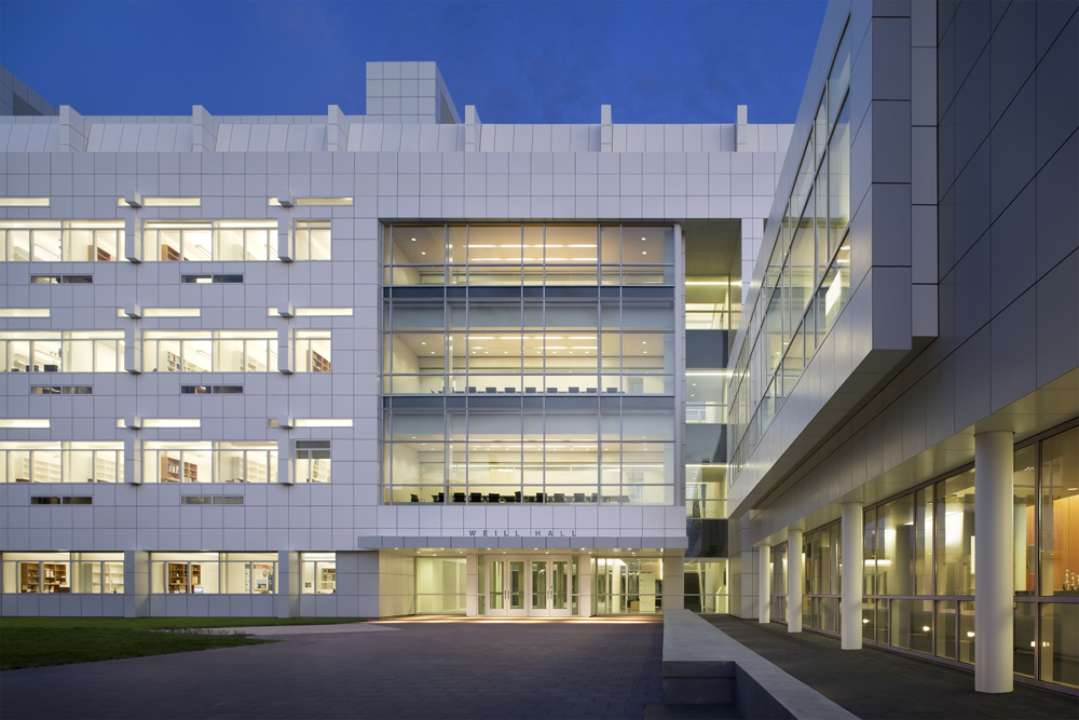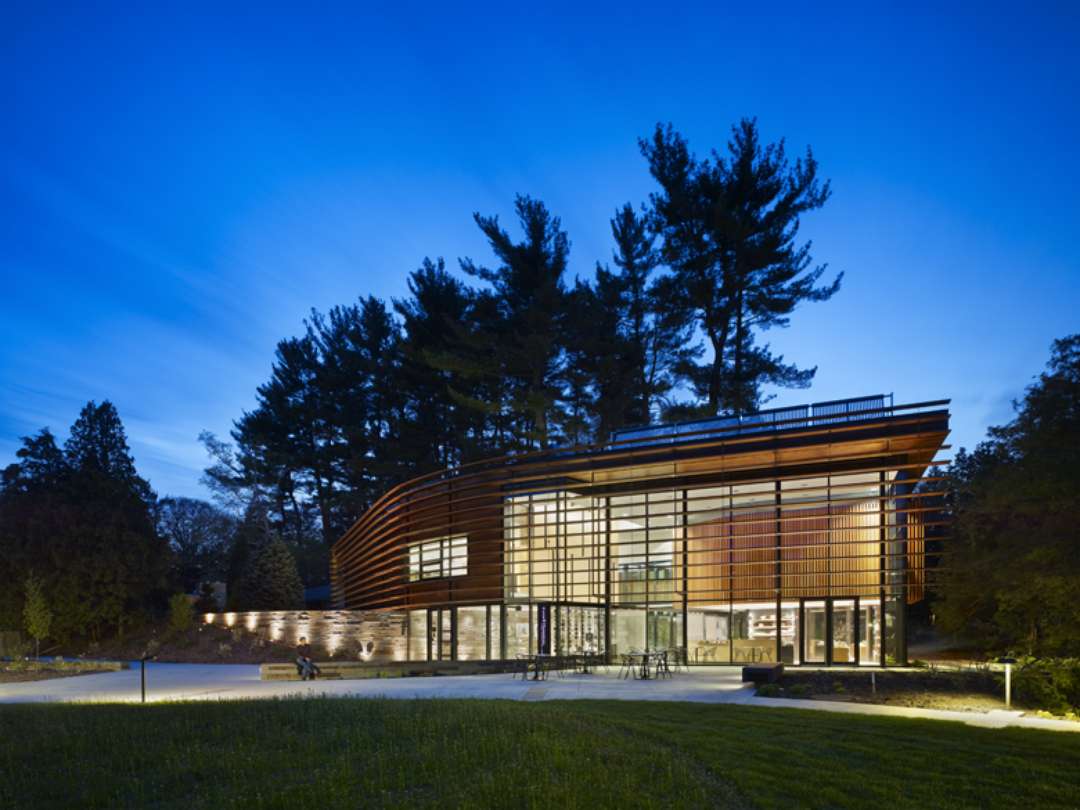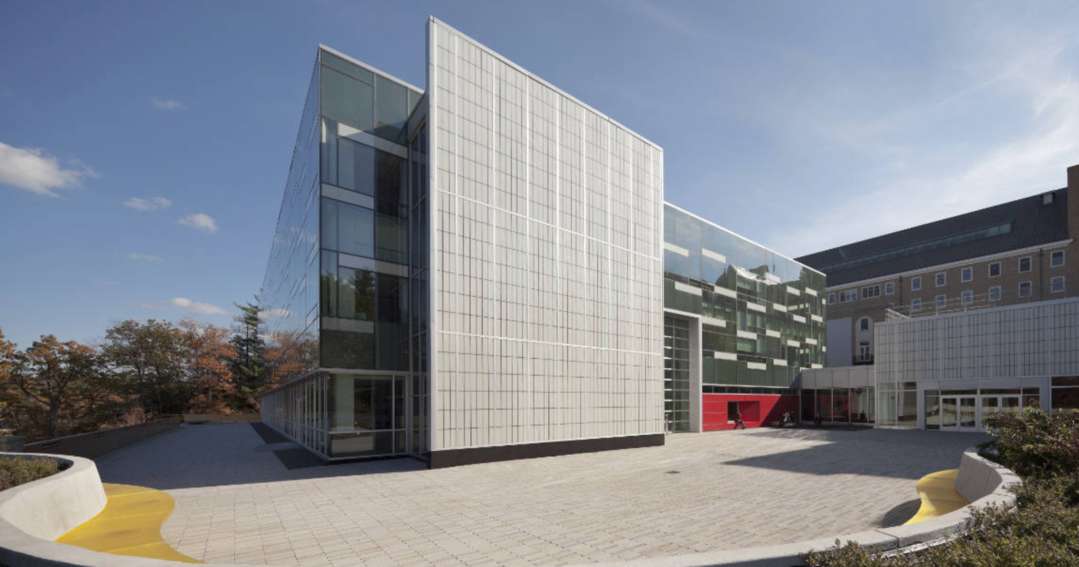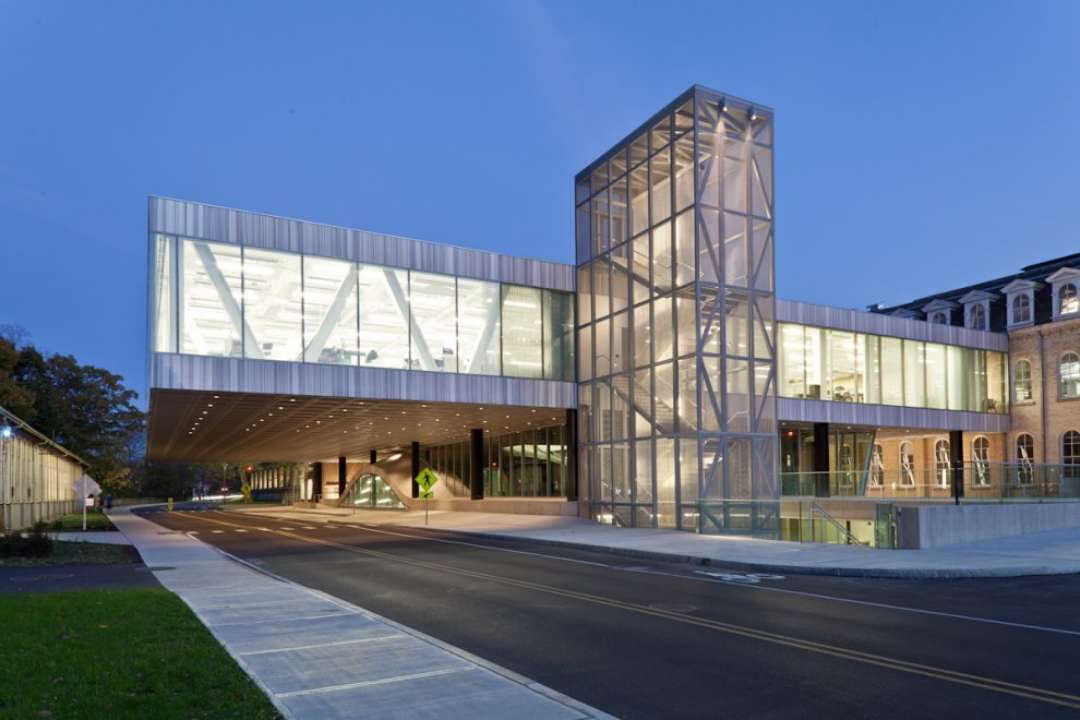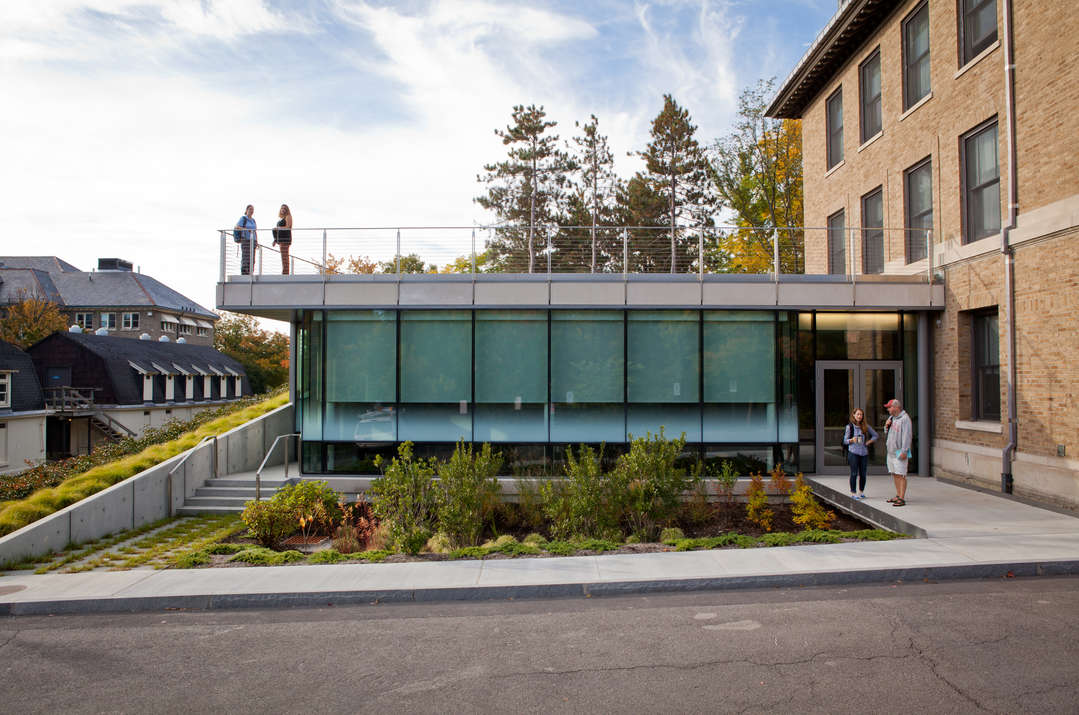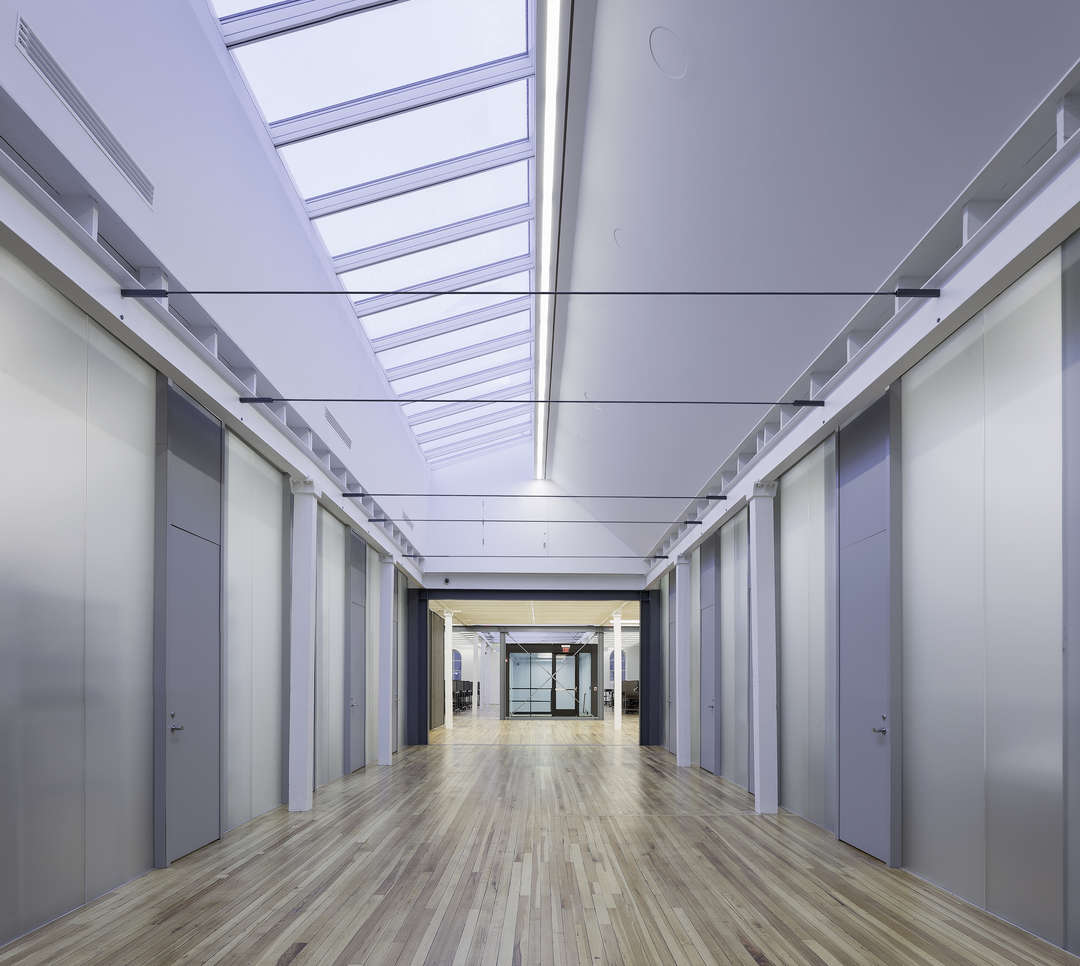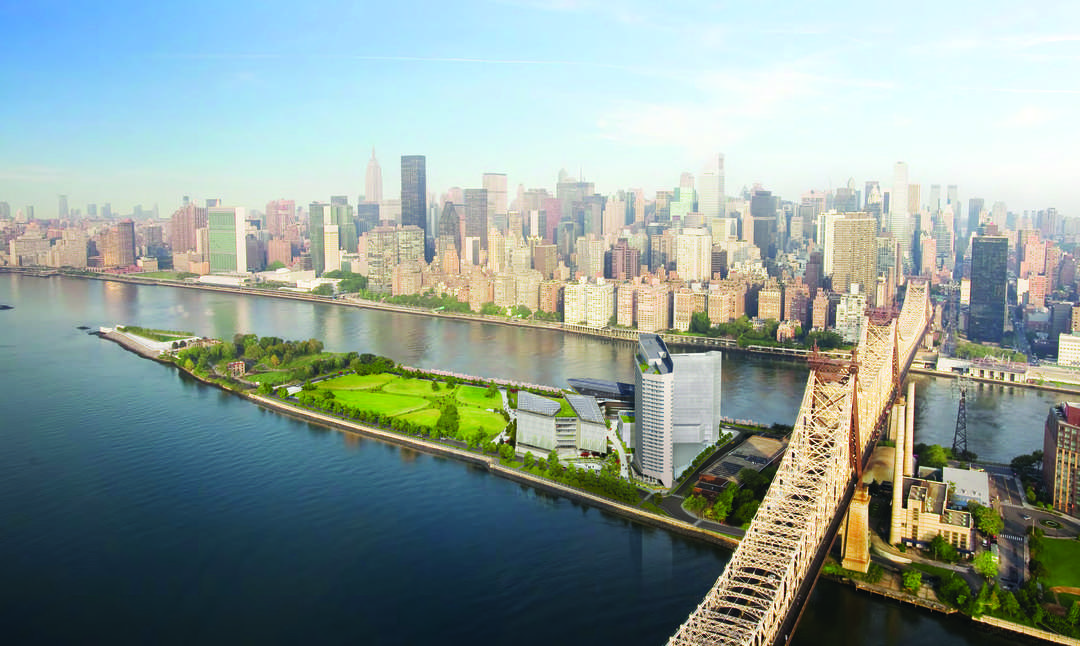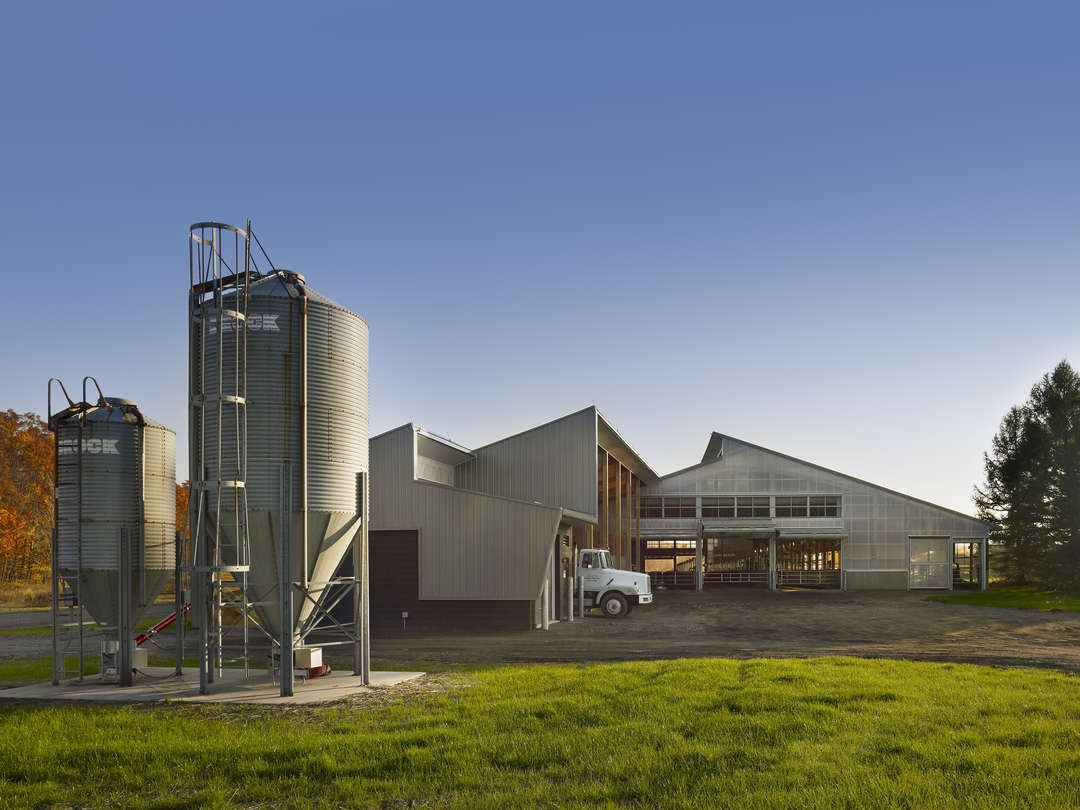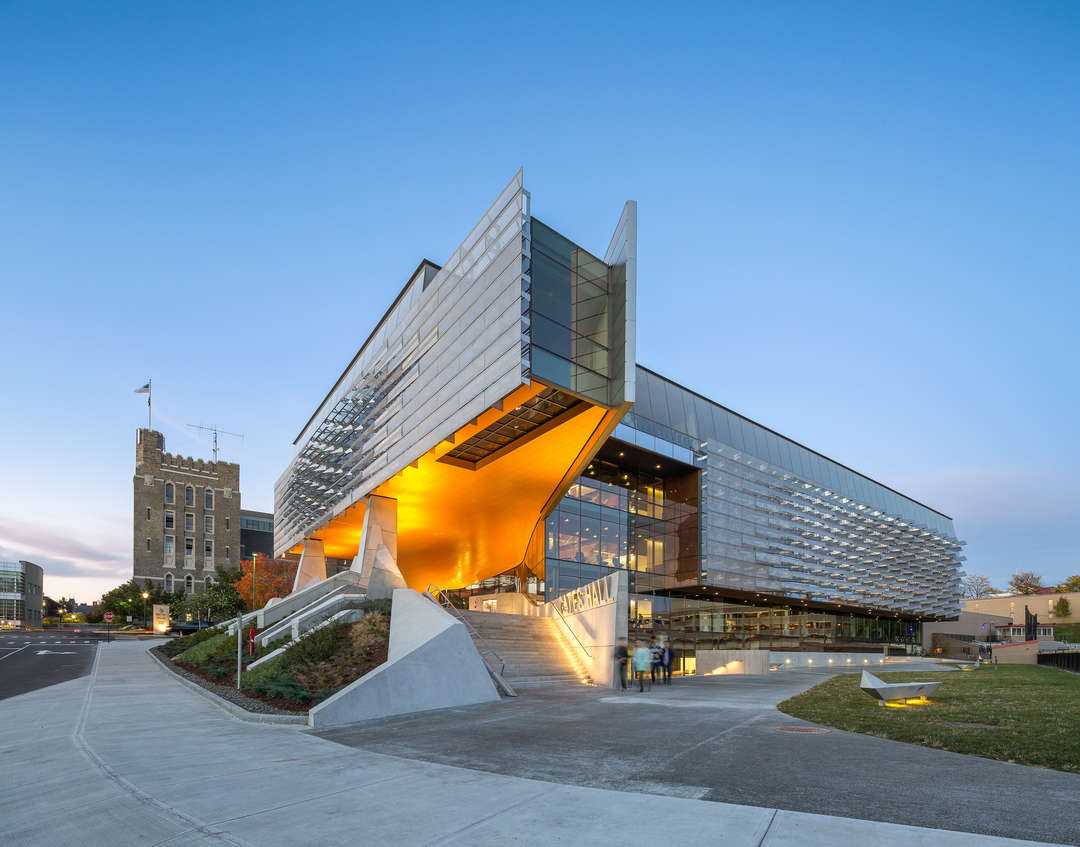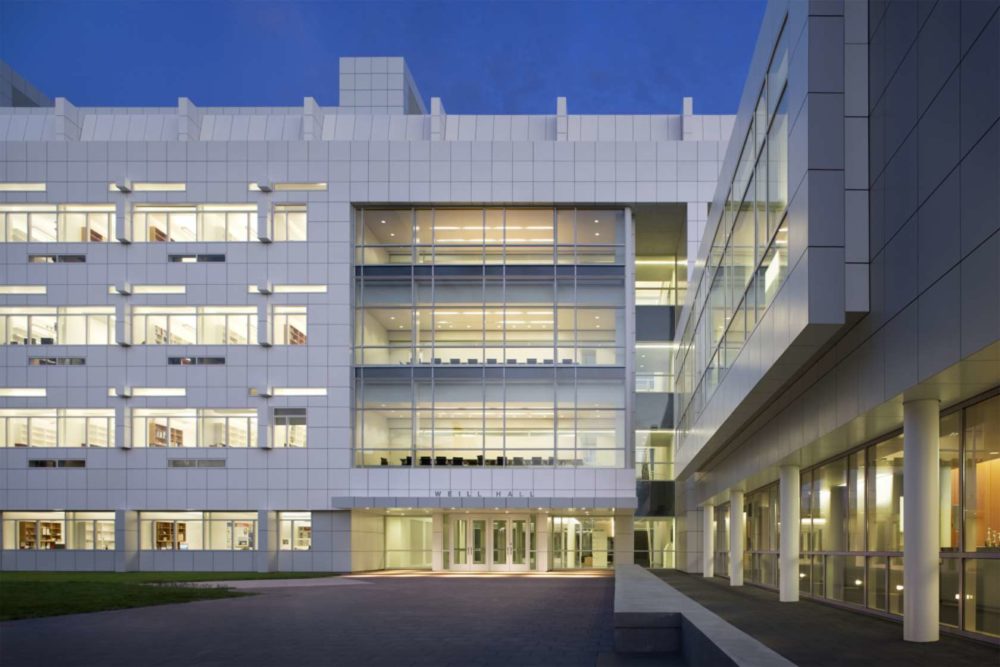
Founded as a university that aspired to teach and make contributions in all fields of knowledge, Cornell has emerged as a global leader in research and graduate studies. Organized into seven undergraduate colleges and seven graduate divisions, the land grant college centers on its 745-acre main campus in Ithaca, New York. Built with an irregular layout and eclectic architectural styles, the campus overlooks Ithaca and Cayuga Lake.
Home to the Cornell College of Architecture, Art and Planning, the university houses its own incredible designs. The following collection explores Cornell’s new building projects across its various campuses. From Ithaca to New York, the designs are made as part of a number of ‘green’ university initiatives. Valuing tectonic and material expression, the projects rethink campus design and the future of academic studies at Cornell.
Weill Hall Cornell University by Richard Meier & Partners Architects, Ithaca, N.Y.
Designed as a cornerstone project for Cornell’s Genomics Initiative, Weill Hall houses research and teaching laboratories, a learning center and vivarium. Formed with a linear plan, the building features a layered program and open space to bring a new image to the Central Campus.
Cornell Plantations Welcome Center by Baird Sampson Neuert, Ithaca, N.Y.
The Cornell Plantations Welcome Center is located within the University’s botanical garden. The design includes diverse programmatic spaces, from the educational center itself to a bio-swale, new gardens and classrooms.
Cornell School Of Ecology by Gruzen Samton Architects, LLP, New York, N.Y.
Built to foster collaboration between departments and occupants, the Cornell School of Ecology was created as a state-of-the-art science center. Programmatically, the project includes research laboratories, versatile classrooms and studios.
Milstein Hall by OMA, Ithaca, N.Y.
Milstein Hall was created as an addition to the College of Architecture, Art and Planning at Cornell University. With a program that includes studios, auditorium, crit spaces and public spaces, the hall provides a needed connection between two existing buildings on campus.
Rehabilitation of Fernow Hall by di Domenico + Partners, LLP, Ithaca, N.Y.
Reimagining Fernow Hall for Cornell’s College of Agriculture and Life Sciences, di Domenico + Partners designed space for lectures, conference rooms, faculty offices and classrooms. The contemporary addition is part of a multi-phased critical maintenance plan that addresses the need for a new innovative facility.
Cornell Sibley Hall by Levenbetts, Ithaca, N.Y.
As a connective renovation for the Cornell College of Architecture Art and Planning, as well the Arts Quad and larger campus, the Sibley Hall project features faculty offices, collaborative space and student studio space. The nuanced design resolution worked to seamlessly integrate new and historic spaces.
The Bridge at Cornell NYC Tech by WEISS / MANFREDI, New York, N.Y.
WEISS / MANFREDI’s design for The Bridge project is a seven-story corporate co-location building and “R and D” hub that doubles as a flexible incubator. Shared spaces for academic studies and entrepreneurial activities are organized around a loft-like building typology on the Roosevelt Island campus.
Cornell Tech Residential Tower by Handel Architects LLP, New York, N.Y.
Also located on Cornell’s new Roosevelt Island campus, this residential tower will become the first high-rise residential building in the world built to Passive House standards. Housing 350 residential units within the 270-foot-tall building, the design will act as a beacon of the Cornell Tech campus and a symbol of the school’s unwavering commitment to sustainability.
Cornell Teaching Dairy Barn by Erdy McHenry Architecture, LLC, Ithaca, N.Y.
Cornell’s new teaching dairy barn was made as a space to instruct students on the functional, organizational and operational aspects of running a dairy facility. Envisioned as the face of the College of Veterinary Medicine, the design addresses primary programmatic concerns while forming an identifiable landmark among its surroundings.
Bill & Melinda Gates Hall by Morphosis, Ithaca, N.Y.
Morphosis’s design for Gates Hall creates a new campus gateway and frontage near Barton Hall and Hoy Field. Made with a performative steel skin, the hall circulation is organized around a glazed atrium and both informal study and collaborative spaces.

